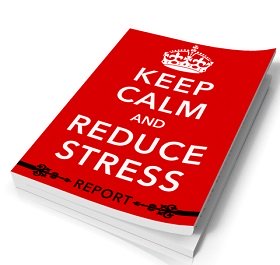Time Management Strategies to Enjoy More and Stress Less
What comes to mind when you think about time management strategies? Day planners? "To Do" lists? More efficient office equipment? What if I were to suggest that the best time management strategies revolve around how you think?
Too many of us spend time worrying about what needs to be accomplished rather than spending the time accomplishing the tasks. We fret about how many demands are placed on us by too many people. We yearn for more time, yet the hours are allusive.
Let's consider how we can change this cycle. The three aspects of time management that I emphasize are (1) establish realistic goals (2) develop a workable plan, and (3) stop wasting time. By practicing effective time management strategies you have better control over what happens in each day and can build in flexibility for the unexpected. There will always be a need to create a life balance between professional and personal responsibilities but it is never useful to allow the tyranny of urgent situations and unforeseen deadlines to keep you in a constant crisis mode.
Setting Goals Helps Focus Your Time
When many different people put demands on your time, it can be easy to become overwhelmed. You need a clear sense of direction and this comes from establishing goals. Goals can be written to fit different time frames from annual, monthly, weekly, or daily. Review the SMART Goals article to learn how to craft effective goals. Creating goals gives you target and by specify the amount of time needed to complete each goal you can make realistic plans to successfully reach the target.
Planning Ahead Lowers Stress Levels.
Each minute you spend in planning can save you from 4-10 minutes in actually completing the task. If you can save 1/2 hours per day, you can save over 20 work days in a year. Planning ahead takes discipline. The saying, "Plan your work and work your plan" advises that if you have spent time creating a solid action plan, then you can spend less time carrying out the actual completion of the task.
I like to create a monthly set of goals for my business and then establish weekly general plans and daily specific lists of tasks to complete. I am aware of what needs to be completed in a week's time and what priorities I need to address on a daily basis.
Be careful when allocating time for projects so you are not racing to meet a deadline. Allowing ample time to complete projects may preclude you having too many stressful deadlines occurring too close together. If you can, space deadlines from occurring at the same time. Deadlines for personal and professional responsibilities should be considered. Just because one event is happening at home and one at the office doesn't make the stress any less intense.
I like to end my work day by reviewing what I accomplished and what I plan to accomplish the next day. Planning gives me a sense of control over my destiny, even if things change unexpectedly. When there are changes I can modify my plans and regroup. Time management strategies are never exact but they can be realistic.
How Do You Waste Time?
- Are you worrying about what may happen but hasn't yet? Stop that thinking and get something done.
- Are you spending too much time surfing the internet? Limit time to first thing in the morning, lunch break and at the close of the day.
- Are you allowing interruptions to get you side tracked? Answer emails and phone calls at the end of the day.
- Are you micro-managing others? Let them do their job.
- Are you a procrastinator? Tackle the toughest task first thing and get it out of the way.
Download my FREE E-Book:
Taking Control of the Daily Chaos
Time Management Tips Help You Get Organized
POPULAR PAGE
Join Calm Starts Here, and receive FREE How to Get a Good Night's Rest and Stop Worrying.
Share this Page on SheToldMe.com
Become a FaceBook Fan











